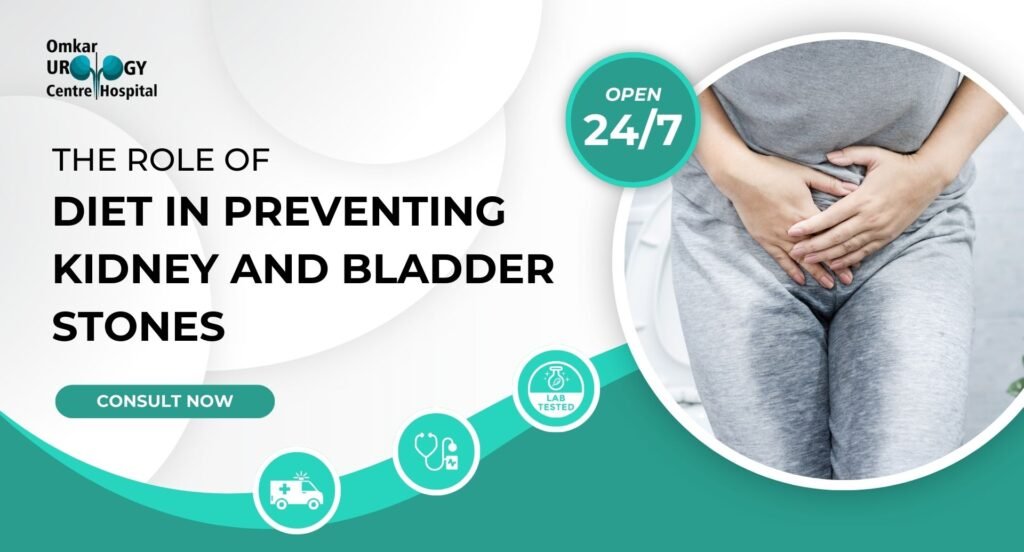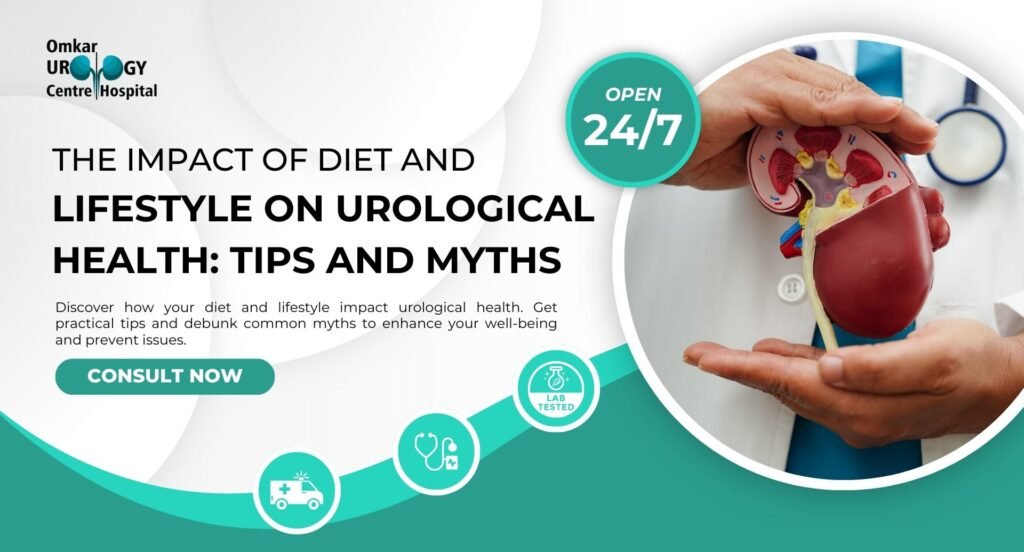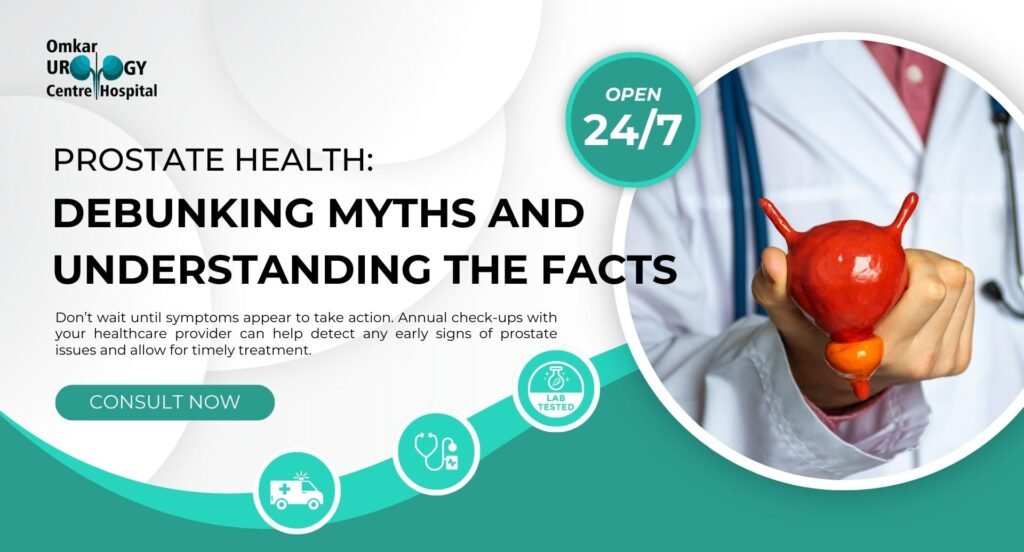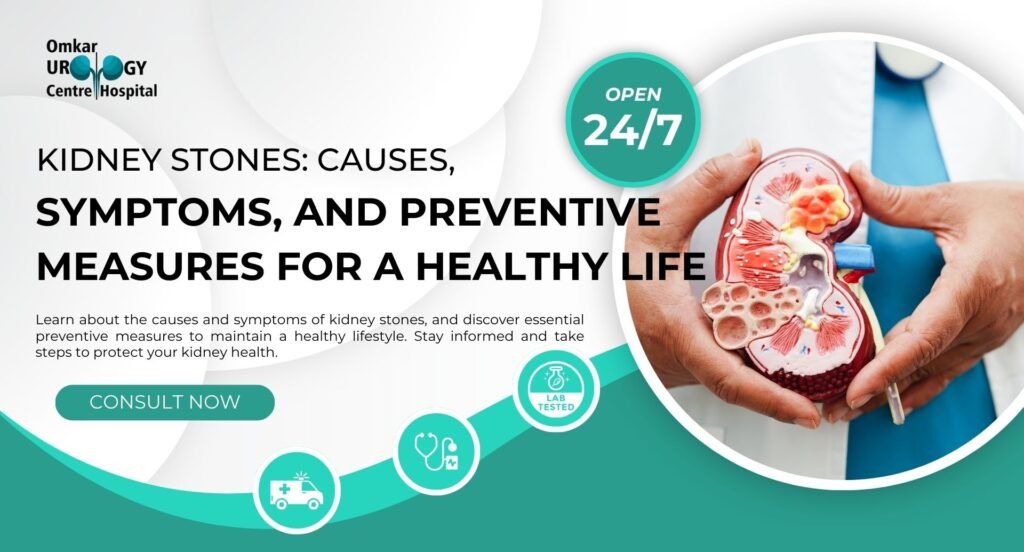
Kidney and bladder stones are common urological issues that can cause significant discomfort and complications if left untreated. These stones form when minerals and salts in the urine crystallize, often due to poor dietary habits, dehydration, or genetic predisposition. Fortunately, adopting a healthy diet can play a crucial role in preventing the formation of these stones.
Understanding Kidney and Bladder Stones
Kidney and bladder stones are hard deposits made of minerals and salts that form in the urinary tract. They vary in size and composition, with the most common types being calcium oxalate, uric acid, struvite, and cystine stones. Symptoms of stones include severe pain, blood in the urine, frequent urination, and nausea.
How Diet Impacts Stone Formation
Diet significantly influences the risk of developing kidney and bladder stones. Certain foods and beverages can either promote or prevent the formation of these stones. Here’s how diet impacts stone formation:
- Hydration: Staying well-hydrated is the most effective way to prevent stones. Drinking plenty of water dilutes the substances in urine that lead to stone formation.
- Calcium Intake: Contrary to popular belief, dietary calcium is essential for preventing stones. Calcium binds with oxalates in the intestines, reducing their absorption and preventing stone formation.
- Oxalate-Rich Foods: Foods like spinach, beets, nuts, and chocolate are high in oxalates. Consuming these in moderation and pairing them with calcium-rich foods can help reduce the risk.
- Sodium Reduction: High sodium intake increases calcium levels in the urine, raising the risk of stone formation. Reducing salt in your diet can significantly lower this risk.
- Protein Consumption: Excessive consumption of animal protein can lead to increased uric acid levels, a common cause of stones. Opting for plant-based proteins can be a healthier alternative.
- Citrus Fruits: Citrus fruits like lemons and oranges contain citrate, which can help prevent stone formation by binding with calcium and inhibiting crystal growth.
READ MORE: >> Kidney Stones: Causes, Symptoms, and Preventive Measures for a Healthy Life
Foods to Include and Avoid
Include:
- Water and herbal teas
- Low-fat dairy products
- Whole grains
- Fresh fruits and vegetables, especially citrus fruits
- Legumes and plant-based proteins
Avoid:
- Processed and salty foods
- Sugary drinks and sodas
- High-oxalate foods in large quantities
- Excessive red meat and organ meats
A Message from Dr. Amit Kumar (Founder & CEO of Omkar Urology Hospital)
“At Omkar Urology Hospital, we believe in the power of prevention. Diet plays a pivotal role in reducing the risk of kidney and bladder stones. By making informed dietary choices and staying hydrated, you can significantly lower your chances of developing these painful conditions. If you’re experiencing symptoms or have concerns about your urological health, our team at Omkar Urology Hospital, the best urology hospital in Varanasi, is here to provide expert care and guidance. Let’s work together for a healthier future.”
Frequently Asked Questions (FAQs)
Q1: What are the most common causes of kidney and bladder stones?
A: Kidney and bladder stones often form due to dehydration, high sodium intake, excessive consumption of oxalate-rich foods, and genetic predisposition. Poor dietary habits and certain medical conditions can also contribute.
Q2: How much water should I drink to prevent kidney stones?
Ans: It is recommended to drink at least 2-3 liters of water daily to keep your urine diluted and reduce the risk of stone formation.
Q3: Can consuming calcium increase the risk of kidney stones?
Ans: No, dietary calcium can actually help prevent stones by binding with oxalates in the intestines. However, excessive calcium supplements may increase the risk.
Q4: Which foods are high in oxalates and should be limited?
Ans: Foods high in oxalates include spinach, beets, nuts, chocolate, and sweet potatoes. Consuming these in moderation and pairing them with calcium-rich foods can help reduce the risk.
Q5: Are there any specific fruits that help prevent kidney stones?
Ans: Citrus fruits like lemons, oranges, and grapefruits are beneficial as they contain citrate, which can help prevent stone formation.
Q6: Can reducing salt intake help prevent stones?
Ans: Yes, reducing salt intake can lower calcium levels in the urine, decreasing the likelihood of stone formation.
Q7: When should I consult a doctor about kidney or bladder stones?
Ans: You should consult a doctor if you experience severe pain, blood in the urine, frequent urination, nausea, or other symptoms of stones. Early intervention is key to effective treatment.
Conclusion
Preventing kidney and bladder stones is possible with the right dietary habits and lifestyle choices. Staying hydrated, moderating sodium and oxalate intake, and including calcium and citrus-rich foods in your diet are simple yet effective strategies. If you have a history of stones or are at risk, consult a urologist to develop a personalized prevention plan. Remember, prevention is always better than cure.








